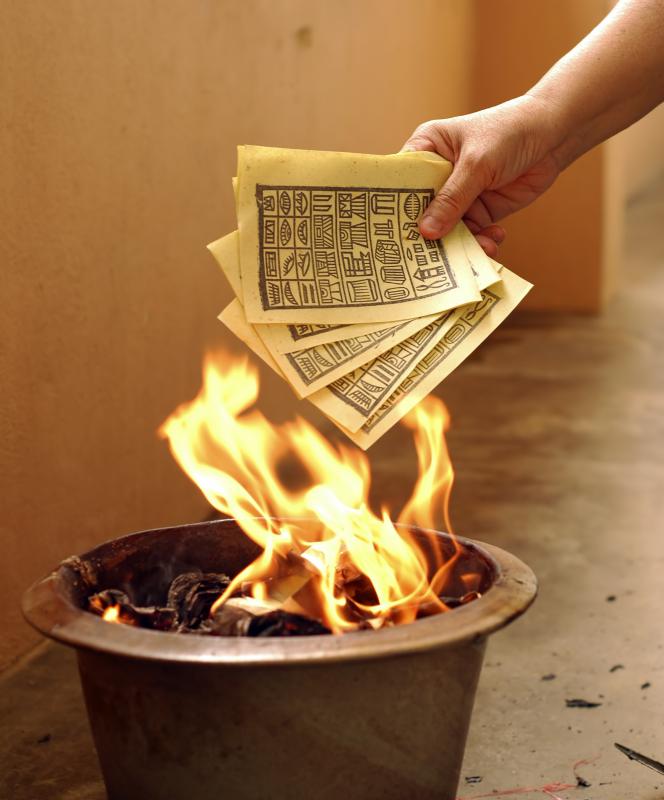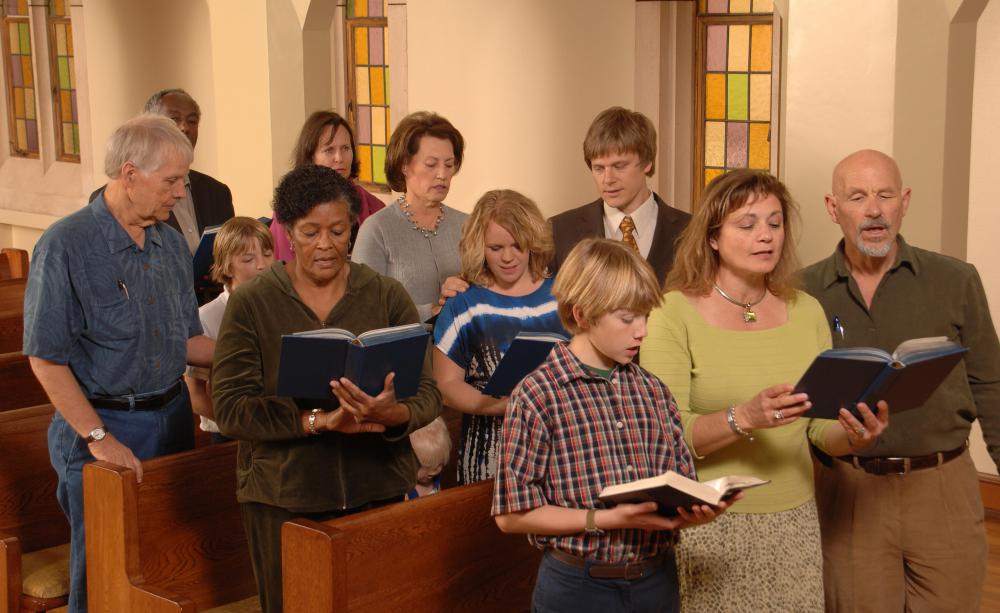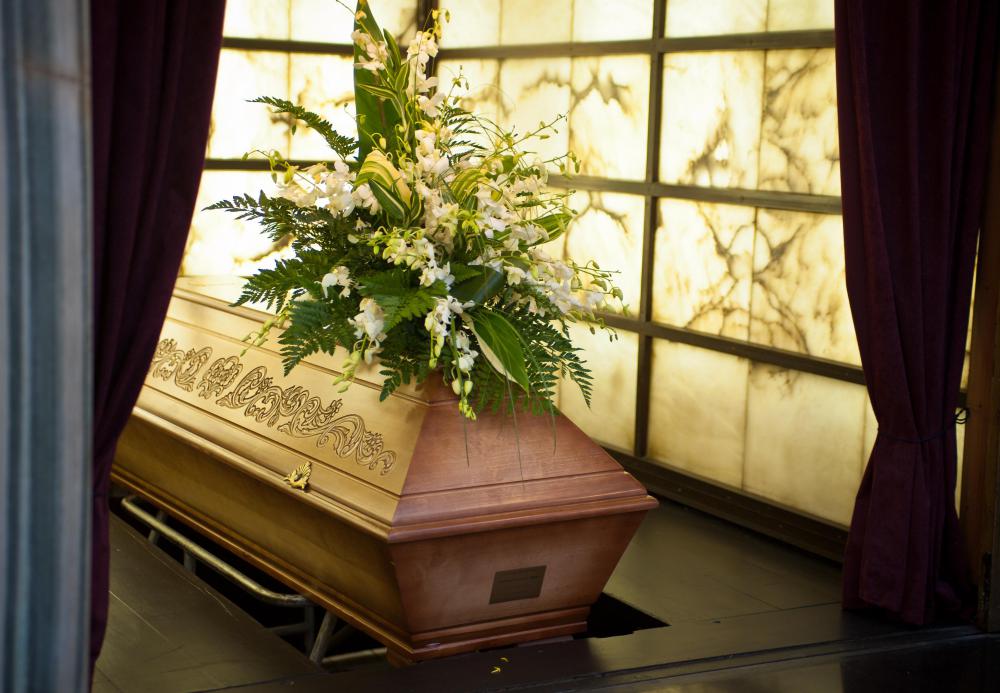At WiseGEEK, we're committed to delivering accurate, trustworthy information. Our expert-authored content is rigorously fact-checked and sourced from credible authorities. Discover how we uphold the highest standards in providing you with reliable knowledge.
What is Funeral Etiquette?
Funeral etiquette is a set of etiquette guidelines which pertains specifically to funerals and other burial rituals. It is important to remember that funeral etiquette varies between cultures and religions, and no set of rules can govern how to behave at every single funeral around the world. For people who are attending a funeral for someone who comes from a different cultural or religious background, it is appropriate to ask for advice about how to behave from someone who is knowledgeable.
Most rules of funeral etiquette are simply common sense. Attendees at a funeral, wake, memorial, or any ceremony being held to honor the life of someone who has died are expected to dress somberly and simply, to behave respectfully, and to greet the mourners. A traditional greeting includes a brief expression of sympathy. Sending flowers and cards to mourners is also traditional.

Some rules of funeral etiquette surround behavior in specific situations. If a family holds a wake or visiting hours at their home, people are expected to drop by briefly to express sympathies and perhaps share a memory of the deceased, and bringing a gift of food is commonplace in many cultures, so that the family does not have to cook. People are expected to speak in low voices during visiting hours, and to listen attentively when others are speaking.

At a funeral, attendees remain silent unless they are called upon to speak or sing with the rest of the congregation. People who are invited to serve as a pallbearer or give a eulogy may be given additional directions by the officiant. Young children may be permitted, as long as they can remain quiet for the ceremony.
Close friends of the mourners may offer additional assistance under the rules of funeral etiquette, such as volunteering to help at the ceremony, or assisting with organization, picking up relatives, driving people to the funeral, and so forth. Assistance should not be offered unless the offer is genuine, and people should be aware that their offers may be politely refused.

The bereaved are also expected to comply with certain etiquette rules. It is traditional to send thank you notes to people who have sent cards, flowers, and other gifts, and to people who assisted with the funeral, including the officiant, staff of the funeral home, and so forth. At visiting hours, it is polite to greet the guests and express appreciation for their visit, although the bereaved are not expected to act in the capacity of hosts.
AS FEATURED ON:
AS FEATURED ON:


















Discussion Comments
I've had this happen numerous times. Now it has happened to me. I would like to know what is proper. My Uncle who was very close to me, recently passed. A dear friend sent a garden angel with my name on it and even included on the back it was to go to my name after service. Another family member who was my uncle's child took it.
I would like to know why certain family members feel that they "trump" everyone else? This also happened in another circumstance. My best friend's brother died and I had also sent a garden angel. I asked if she had received it, because she had not mentioned it. The brother's wife, so it would have been my friend's sister-in law, decided to take it. This should be avoided at all costs. I will never send flowers or gifts to the church or funeral home any longer. I will send them directly to the person I intend to have them to their home. Or send a monetary memorial gift in the form of a check!
Post your comments